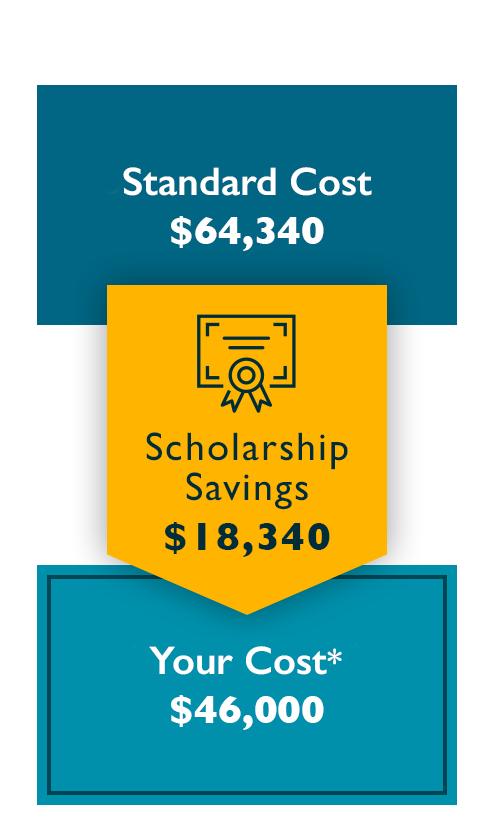Why Choose Walden?
Program Details
Curriculum
Degree Completion Requirements
- 181 quarter credits
- General education courses: 46 cr.
- Core Program Courses: 50 quarter credits
- Concentration courses: 25 quarter credits
- General Electives: 55 quarter credits
- Capstone Course: 5 quarter credits
Students may be eligible to transfer up to 135 credits*. At least 45 credits must be completed at Walden.
*Please note: Students that reside in Virginia may be eligible to transfer up to 125 credits. At least 55 credits must be completed at Walden.
View the COMPLETE CURRICULUM PLAN.
Time to completion will vary by student, depending on individual progress and credits transferred, if applicable. For a personalized estimate of the number of your transfer credits that Walden would accept, call an Enrollment Specialist at 855-767-9522.
Admission Requirements
Admission is considered for adult students who hold a high school diploma or its equivalent. Applicants must also meet one of the following criteria:
- You are 21 years of age or older.
- You are less than 21 years of age with at least 12 quarter credits.
- You are an active member of the military or a veteran with documentation of service.
More information for international applicants.
| Curriculum Component | Requirements | Cost | Amount |
|---|---|---|---|
| Tuition | 181 quarter credit hours | $340 per quarter hour | $61,540 |
| Program Fee | Per quarter | $175 | $2,800 |
| $64,340** | |||
| BELIEVE & ACHIEVE SCHOLARSHIP YOUR TUITION | -$18,340 $46,000* | ||
*Represents minimum time to completion, no transfer of credit, and Believe & Achieve Scholarship. Your actual total program time and costs may vary. Believe & Achieve Scholarship savings based on current tuition. See Scholarship Details for more information.
**Tuition reflects the minimum time to completion. Time to completion varies by student, depending on individual progress and credits transferred, if applicable. Tuition and time to complete may be reduced if transfer credits are accepted, or if you receive grants, scholarships or other tuition reductions. Walden may accept up to 135 transfer credits. For a personalized estimate of the number of your transfer credits that Walden would accept, call an Enrollment Specialist at 844-768-0109.
Tuition and fees are subject to change. Books and materials are not included and may cost up to an additional $5,000.
Program Outcomes
Create Deeper Human Connections
In this online communication degree concentration, you’ll build greater confidence in your personal interactions. Make your voice heard and empower others to express themselves as well. Develop stronger, more meaningful connections with the people you see every day—both in and outside of work—and add a deeper level of satisfaction to all of your relationships.
Career Outlook
Human interaction and connection are at the core of all we do, both at work and in our daily lives. With a BS in Communication with a concentration in Possibilities, Problems, and the Human Condition, you’ll master interpersonal communication techniques that can transfer to any setting. Learn emotional intelligence skills that help bring people together to achieve common goals. Become an active, effective member of your organization and community.









